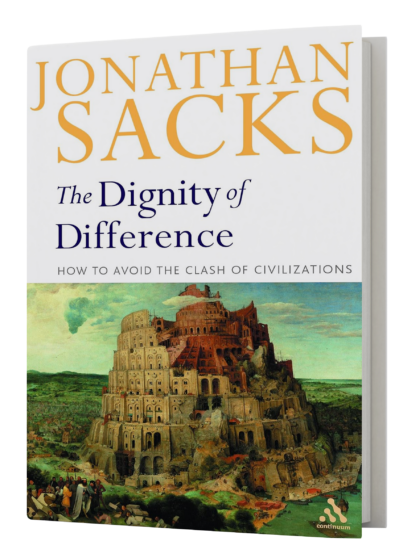
One of Judaism’s most distinctive and challenging ideas is its ethics of responsibility. We have been given the gift of freedom and we in turn have to honour and enhance the freedom of others. More than in any previous generation, we have been tempted to imagine that it is the individual’s needs which are the sole source of meaning. In To Heal a Fractured World, Rabbi Sacks argues that such preoccupation with oneself is a mistake. Ethics are concerned with the life we live together, and the goods we share only exist by virtue of being shared.
Rabbi Sacks argues his case in a way which shows a profound engagement with the human condition today, and reflects how widely he has read. He talks with as much authority about Sigmund Freud or Karl Marx as he does about the Hebrew Bible.
This is a clarion call to the outside world to come to its senses.










